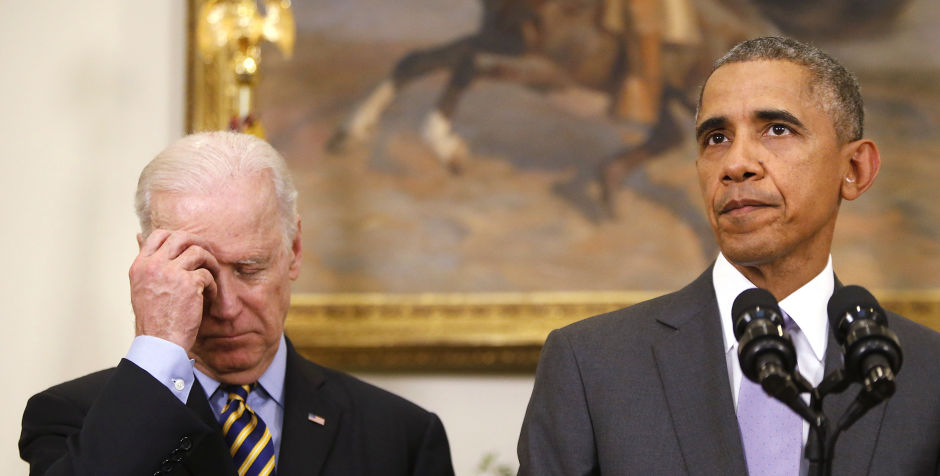With His Proposed AUMF, President Obama Once Again Tries to Limit Our Next President
We’ve seen this movie before.
With the Obama administration, a familiar pattern is emerging. Trusting his own wisdom, President Obama resists oversight, goes to legal war against leakers and whistleblowers (at least those who make it look bad), and launches or proposes military offensives against sovereign nations without seeking congressional approval. At the same time, however, he works diligently to undermine the autonomy of the next commander-in-chief, working to create legal structures that will bind presidents after President Obama leaves Washington. He trusts himself, but he doesn’t trust his successor, or the American people.
The first example? Drone policy. Remember this New York Times story from 2012?
Facing the possibility that President Obama might not win a second term, his administration accelerated work in the weeks before the election to develop explicit rules for the targeted killing of terrorists by unmanned drones, so that a new president would inherit clear standards and procedures, according to two administration officials. . . .
“There was concern that the levers might no longer be in our hands,” said one official, speaking on condition of anonymity. With a continuing debate about the proper limits of drone strikes, Mr. Obama did not want to leave an “amorphous” program to his successor, the official said. The effort, which would have been rushed to completion by January had Mr. Romney won, will now be finished at a more leisurely pace, the official said.
Leisurely indeed. After all, there’s no rush now. The moral god-kings of the drone war won’t be vacating their cubicles until January 2017.
But as bad-faith as it is to try to impose drone regulations on a new president — regulations the next president could revise (though no doubt in the face of fierce and vitriolic opposition) — that action pales in comparison to the problematic aspects of the AUMF. John Yoo and Mario Loyola have ably outlined the legal and strategic flaws in President Obama’s request for congressional authorization to use military force against ISIS and allied groups. To take their argument just a bit further, President Obama’s AUMF tries to enlist Congress in a resolution that would essentially codify his military strategy and his foreign policy, regardless of the facts on the ground. As Mr. Loyola notes, this is effectively a “de-authorization” of force.
The intrusion on the next commander-in-chief’s authority is unprecedented. With a limitation of three years and a prohibition against “enduring offensive ground combat operations” (whatever that means) just imagine the outcry if a future Republican president deviated materially from President Obama’s current course of action. Would the introduction on the ground of a Brigade Combat Team lead to calls for impeachment? If ISIS proves resilient in the face of mandated limited war (as would be likely), would we face a national debate over mandatory withdrawal and retreat? As Mr. Loyola points out, the AUMF is laden with “poison pills.”
The Iraq War resolution and the post 9/11 AUMF didn’t limit future presidents — they empowered them to defend the nation against known threats and prosecute military conflicts to a successful resolution. These authorizations did not require any particular strategy, nor did they require President Obama to continue hostilities (in fact, he’s tried his darndest to end wars while the enemy is still fighting). This president’s authorization, however, implements the basics of a third term of Obama foreign policy. And that’s the last thing this nation needs.
I’m in favor of an AUMF against ISIS, but it should empower our commander-in-chief to fight and defeat our enemy according to a strategy determined in cooperation with his or her military commanders, based on the facts on the ground. An AUMF that ties our hands, extends President Obama’s military doctrine, and provides a deadline for retreat and defeat is worse than no AUMF at all.

